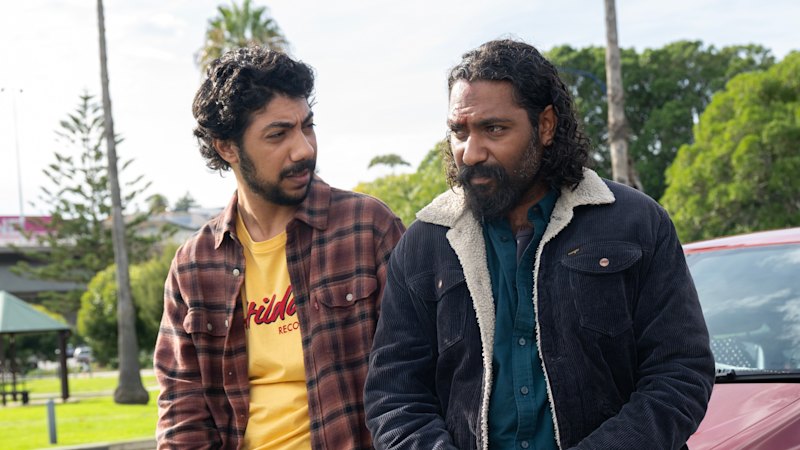
Reckless, a new Australian thriller, delivers a darkly comic narrative reminiscent of the cult classic Fargo, but with a distinctively local flavor. Set against the backdrop of Fremantle, Western Australia, the series explores the chaotic consequences of a crime gone wrong, emphasizing the precarious nature of cover-ups rather than the crime itself. This “sunshine noir” is told through a First Nations lens, both in front of and behind the camera, offering a fresh perspective on a familiar genre.
Indigenous siblings June and Charlie, played by Tasma Walton and Hunter Page-Lochard respectively, find themselves entangled in a web of deceit following an accidental hit-and-run after a family wedding. June, a successful lawyer, and Charlie, a record shop owner, are forced to navigate the moral and legal implications of their actions, leading to a series of increasingly desperate decisions. Their dynamic, filled with tension and dark humor, keeps viewers both amused and on edge.
The Intricacies of Family and Morality
The series opens with June and Charlie’s strained relationship, highlighted during a car ride home. As they argue over their differing life choices, fate intervenes when they hit a pedestrian. June’s insistence that the victim is “probably just winded” sets the tone for the show’s mordant humor and the characters’ questionable morals. Faced with the decision to report the incident or cover it up, the siblings’ conversation is illuminated by the ominous red glow of brake lights, symbolizing the moral crossroads they face.
The victim, an elderly man named George, is revealed to have had terminal cancer, prompting June to rationalize their actions as a “gift of a quick death.” This gallows humor is a constant throughout the series, as the siblings attempt to stay ahead of their mounting troubles. The show cleverly uses this humor to explore deeper themes of race and identity, particularly through June’s warning to Charlie about becoming “another absent black father in prison.”
Exploring Cultural Nuances and Community
While race is a recurring theme, Reckless delves into the complexities of how June and Charlie perceive their Indigenous heritage and their place in Western Australia. Their differing views provide insight into the broader community and societal expectations. Charlie’s playful jab at June as the “white sheep” of the family adds layers to their relationship, highlighting the nuanced portrayal of Indigenous identity.
The series, adapted by Kodie Bedford and Stuart Page from the Scottish drama Guilt, retains the original’s strong sense of place and the ever-present threat for those who live with guilt. The Fremantle setting adds a unique Australian twist, with its sunny yet foreboding atmosphere enhancing the narrative’s tension.
Strong Performances and Unforeseen Twists
Walton and Page-Lochard deliver compelling performances, capturing the complexity of their characters. June’s calculating nature contrasts with Charlie’s struggle to manage his guilt, creating a dynamic that drives the story forward. The introduction of Clarence Ryan as Roddy, a drunken private investigator, adds an unexpected twist to the plot. His transformation into a dogged detective, spurred by June’s manipulative suggestion, exemplifies the series’ penchant for unforeseen setbacks and spiraling chaos.
Reckless is not just a tale of crime and cover-up; it is a reflection on the human condition and the lengths people will go to protect themselves and their loved ones. The series airs at 8.30 pm on Wednesdays on SBS and NITV and is available for streaming on SBS On Demand, offering viewers a chance to delve into this gripping tale.
For those interested in exploring more captivating TV series and films, be sure to subscribe to The Watchlist, delivered every Thursday, to stay updated on the latest must-see entertainment.







